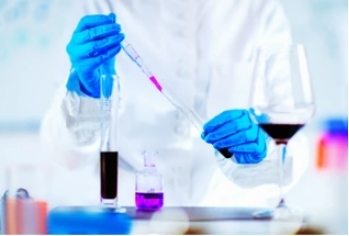
Wine is drinking food. Due to the different raw materials used, different water cleanliness, chemical changes in brewing, and different degrees of pollution of equipment, there are various harmful substances and bacteria in wine to varying degrees. To ensure people's health, the state sets clear and specific health standards and y requires the relevant departments to strictly manage the production and sales process. The national health standards for alcohol are divided into two, one is the distilled spirits and prepared spirits health standards; the physical and chemical indicators contain methanol, miscellaneous alcohol oils, cyanide, lead, and manganese; the other is the fermented spirits health standards, the physical and chemical indicators contain sulfur dioxide residues, aflatoxin, lead, and N-dimethyl nitramine. Wine hygiene testing is essential to improve the quality and safety of wine in production.
Lifeasible offers a one-stop platform for wine hygiene testing through a global network of state-of-the-art laboratories, covering a wide range of liquor, beer, yellow wine, rice wine, prepared wine, food alcohol, etc. Our solution covers the entire process, from sample processing to data analysis; you only need to provide the original sample. In the actual testing process, our testing personnel will strictly implement the international wine hygiene testing standards and select the correct testing standards for different wine production modes to ensure that the testing results are credible and reasonable.
Our wine hygiene testing solutions include:
| Wine Hygiene Testing Items | Wine Hygiene Testing Items Description | Wine Hygiene Testing Methods |
| Methanol Testing in Wine | Methanol is an organic compound with serious toxicity. We provide international standard methods for the determination of methanol in wine. |
|
| Miscellaneous Alcohol Oil Testing in Wine | Miscellaneous alcohol oil is a mixture of higher alcohols. We can measure the miscellaneous alcohol oil in wine to ensure that butanol and isoamyl alcohol meet the national hygiene standard regulations. | |
| Plasticizer Testing in Wine | DINP, DEHP, and DBPs are the main plasticizers in wine. We provide international standard testing methods for extracting wine samples and testing DINPs, DEHPs, and DBPs in wine. | |
| Heavy Metal Testing in Wine | We offer international standard testing methods for heavy metals in wine, including Fe, Cu, Pb, Mn, etc. Depending on the nature of the metal elements, we can select the best test for you. | |
| Cyanide Testing in Wine | Cyanide is mainly derived from the raw materials used in wine making. As the raw material contains bitter amygdalin, the hydrolysis of bitter amygdalin will produce highly toxic cyanide. We can measure cyanide in wine to ensure its content meets national hygiene standards. | |
| Sulfur Dioxide Testing in Wine | We measure sulfur dioxide residue in wine in strict accordance with the standards for determining sulfites in food. | |
| Food Additive Testing in Wine | We provide international standard testing methods for additives in wine, including flavor modifiers, synthetic colorants, and preservatives. |
(1) Sample processing.
(2) Determination of wine hygiene indicators, as detailed in the table above.
(3) Generate test results.
(4) Data analysis and evaluation.
Lifeasible aims to conduct wine hygiene testing in accordance with national and local standards to comply with food safety norms and to improve the quality of wine with some reference value. Our dedicated team provides customized solutions to ensure that our clients' needs are met. If you are interested in these services or solutions, please contact us to obtain the latest information.
Lifeasible has established a one-stop service platform for plants. In addition to obtaining customized solutions for plant genetic engineering, customers can also conduct follow-up analysis and research on plants through our analysis platform. The analytical services we provide include but are not limited to the following:
July 13, 2024